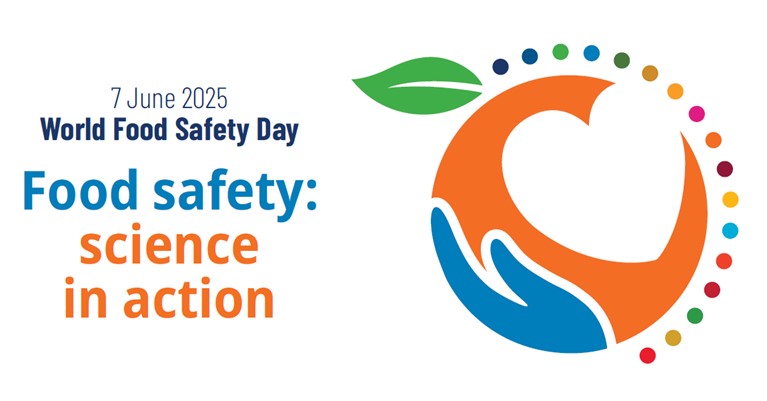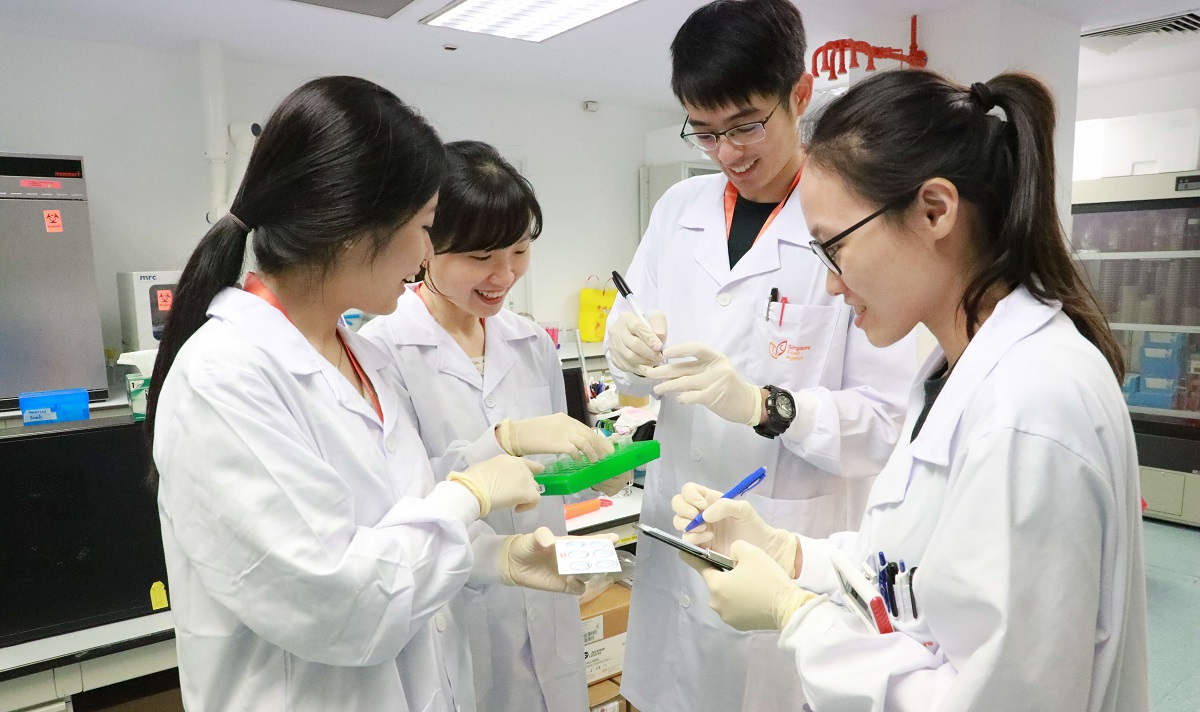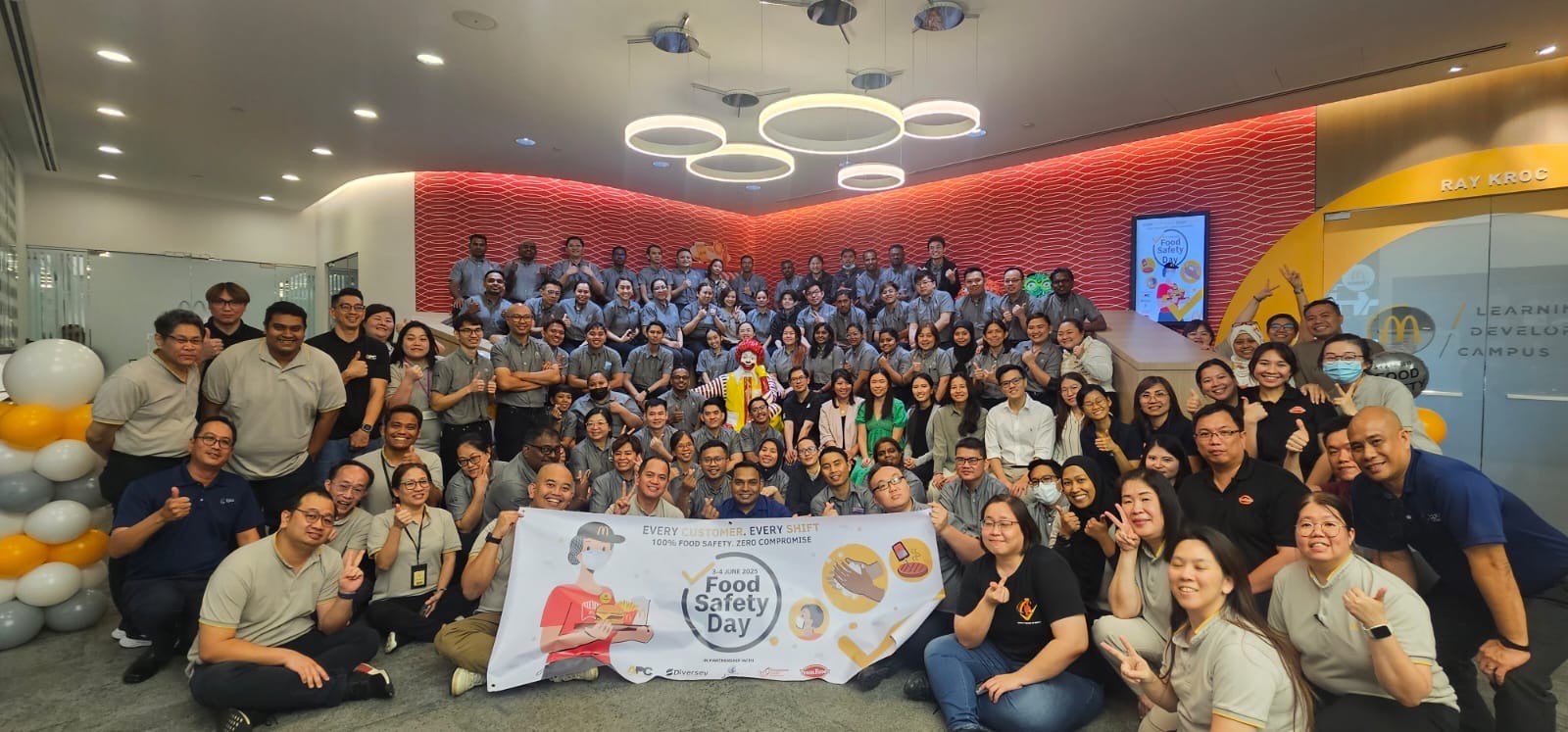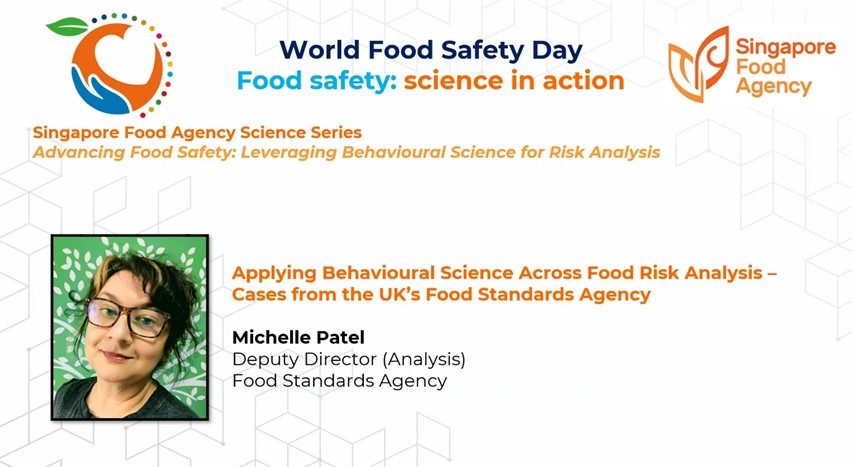Summary:
|
With Singapore importing over 90 per cent of our food from a wide range of sources, it is essential to have a robust food safety system. The World Health Organization (WHO) estimates that 600 million people fall ill each year due to foodborne disease — a clear reminder that food safety is also a global concern requiring a collective response. This year’s World Food Safety Day, themed “Food Safety: Science in Action”, reinforces the value of applying scientific knowledge in practical ways to protect public health.

Credit: WHO
Strengthening food safety through science
SFA has built a comprehensive food safety framework based on scientific risk assessments. This framework spans the entire food chain, from imports and primary production to food manufacturing and retail. It is consistent with international standards, and continually updated to respond to new challenges.
The NCFS plays a key role in this system. Equipped with advanced laboratory facilities, it conducts food safety tests, research and development, and risk assessments to detect and address hazards early. NCFS also monitors the environment for new and emerging threats, including chemical, microbiological, and radiological risks.
This wealth of surveillance data and risk assessments is then transformed into practical guidance for the food industry. By sharing guidelines and best practices with food operators, SFA helps food businesses to take early action in managing food safety risks.

To galvanise industry action, SFA organised a virtual townhall on 30 April 2025, which was attended by more than 140 Quality Assurance and Quality Control professionals from the food services sector. Besides touching on the key food safety concerns identified through SFA’s food safety surveillance programmes, scientists from NCFS also shared practical tips to mitigate food safety risks, such as the “4Cs framework” — Cleanliness, Control of temperature, Cook food well, and Counter cross-contamination. "World Food Safety Day 2025 celebrates the importance that science plays in making informed decisions about food. The townhall served as a platform to disseminate credible, science-based information, which fosters a better understanding of food safety risks and encourages the adoption of the corresponding mitigation practices,” said NCFS scientist Jasmine Gowidjaja, who was part of the organising team. |
Supporting industry-led action
For many businesses, raising food safety standards starts with building internal awareness and capability. McDonald's Food Safety Day, held on 3 and 4 June 2025, reflects how companies can engage their teams meaningfully in keeping food safe.
Held in conjunction with World Food Safety Day, the event brought together 282 restaurant general managers and food quality managers across McDonald’s Singapore to raise awareness of managing various food safety risks. SFA supported the effort by sharing insights on food safety and food allergen management.
Ms Felicia Loh, assistant director at SFA’s Industry Development and Community Partnership Division, shares: “The partnership with McDonald’s Singapore for the second-year running was a good opportunity to promote good food safety practices and underscore the importance of food safety as a shared responsibility.”
 Credit: McDonald's Singapore
Credit: McDonald's Singapore
Widening the conversation
Beyond the industry, food safety is also supported by cross-sector dialogue and international collaborations. On 5 June 2025, SFA hosted a special edition of its Science Series webinar in conjunction with World Food Safety Day. Besides relevant local Government agencies, the webinar was also open to academic and research counterparts, as well as regional audiences from Brunei, Indonesia, and the Philippines.
Titled “Advancing Food Safety: Leveraging Behavioural Science for Risk Analysis”, the session explored how insights from psychology and social science can improve the way food safety risks are communicated and understood. This is especially important given today’s complex food systems and emerging food technologies.
Speakers included Michelle Patel from the UK Food Standards Agency, who shared how social science informs food risk decisions, and Professor Mark Chong from Singapore Management University, who spoke on how consumer perceptions influence the acceptance of novel food technologies.

By bringing together diverse expertise and perspectives, it shows that food safety is not just technical — it is also behavioural. Ongoing efforts to share knowledge and collaborate across agencies and regions will continue to strengthen Singapore’s food safety ecosystem.
Promoting joint responsibility
Food safety is not confined to laboratories or boardrooms. It lives in kitchens, logistics chains, retail counters, and homes. While SFA provides scientific guidance and regulatory structure, the real difference is made by the people applying that knowledge daily. From business owners and quality managers to cooks and consumers, everyone has a role to play.
As this year’s World Food Safety Day reminds us, food safety is a joint responsibility, powered by science but driven by people. Let us work together to keep every meal safe!



